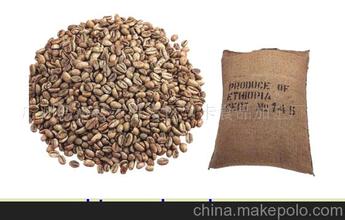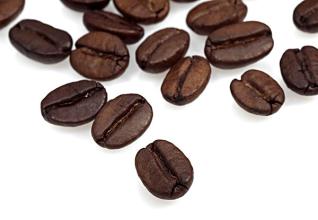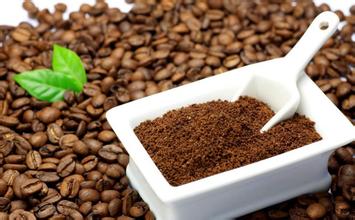How to correctly control the grinding degree and extraction time of coffee beans
When adjusting the degree of grinding, it is necessary to consider the contact time, extraction rate and flow rate in advance. When looking for reasons why coffee is too bitter or too weak, check whether the coffee powder is ground properly.
Making coffee is an art, the choice of coffee beans, the grinding degree of coffee powder, and even the use of what kind of water quality is also very particular, this may be the charm of coffee, carefully cook a cup of strong coffee, slowly taste, certainly do not have a taste. Simply put, the finer the ground coffee, the slower the flow of water. The slower the flow rate, the longer the extraction process and the more fully the coffee flavor is extracted. In addition, water usually flows out along the path of less resistance, so the uniformity and uniformity of grinding are crucial. If the grinding is uneven, the distribution of water flow will be uneven, resulting in uneven extraction. Water flow is also an important basis for you to judge whether the degree of grinding is appropriate. If the flow rate is too fast, it means that your coffee powder is too coarse, and the coffee taste will be too flat; but if the flow rate is too slow, or there is sediment at the bottom of the cup, it means that your coffee powder is too fine, the coffee taste is too heavy, and the taste is too bitter. In addition, the contact time is closely related to the extraction rate of coffee. It sounds complicated, but it's really simple to understand. Extraction rate, i.e. the total amount of soluble matter extracted from coffee by water. If the extraction is insufficient and the soluble substance content is too low, the coffee will become very sour or lack sweetness. If scientifically explained, acids and salts dissolve faster than sugar, coffee lacks sweetness because sugar in coffee has not had time to dissolve, and excessive extraction can bring burnt taste to coffee. Only by controlling the grinding degree and contact time correctly, you can get the ideal extraction rate and the coffee will become more delicious. Contact time is the total time that water and coffee powder are in contact. For example, French coffee and espresso coffee have a very different contact time. If the contact time between water and coffee powder is long, your coffee powder needs to be ground coarser; if the contact time is long, the coffee powder is ground very fine, and your coffee will definitely be over-extracted, losing aroma and leaving only bitter taste. And vice versa, if contact time is short and coffee grounds are ground very coarsely, your coffee will become bland and tasteless. Find the right balance between grind and contact time, and you'll make a truly good coffee. At the same time, different brewing methods have corresponding grinding degrees. The degree of grinding affects coffee taste in three main ways: contact time between coffee powder and water, extraction rate and water flow rate. Where does a cup of strong coffee come from? High quality coffee beans are the first element, and the degree of grinding of coffee powder is equally important. The degree of grinding of coffee powder can greatly change the taste of coffee. If the coffee is slightly different, the taste will become bitter or the taste will become silky.

Important Notice :
前街咖啡 FrontStreet Coffee has moved to new addredd:
FrontStreet Coffee Address: 315,Donghua East Road,GuangZhou
Tel:020 38364473
- Prev

Source of sour coffee: coffee cherry fruit
No matter what kind of equipment it is, in principle, it can reduce the sour taste and combine the sour taste with mellow taste and sweet taste to your favorite proportion. it can even be said that this is the core concept of cooking. Several of the variables that affect sour taste are temperature: higher temperature, sour taste is obviously lower, but don't go too far. Generally, the extraction is between 90 and 92 degrees, and it will be clear if it is raised to 95 degrees.
- Next

Blue Mountain Coffee makes it hard for people to tell the real from the false.-four steps to help you know the real thing.
1. Colombia. Colombia is a kind of high-quality coffee, and the taste of this coffee is very close to that of Blue Mountain. The main difference is that Colombian fruit tastes more sour than the Blue Mountains; at the same time, some Colombian coffee has a hint of wood and the like. It's hard for people who don't drink coffee to tell the difference. Colombian coffee is called the most cost-effective coffee precisely because it is affected by
Related
- Beginners will see the "Coffee pull flower" guide!
- What is the difference between ice blog purified milk and ordinary milk coffee?
- Why is the Philippines the largest producer of crops in Liberia?
- For coffee extraction, should the fine powder be retained?
- How does extracted espresso fill pressed powder? How much strength does it take to press the powder?
- How to make jasmine cold extract coffee? Is the jasmine + latte good?
- Will this little toy really make the coffee taste better? How does Lily Drip affect coffee extraction?
- Will the action of slapping the filter cup also affect coffee extraction?
- What's the difference between powder-to-water ratio and powder-to-liquid ratio?
- What is the Ethiopian local species? What does it have to do with Heirloom native species?

